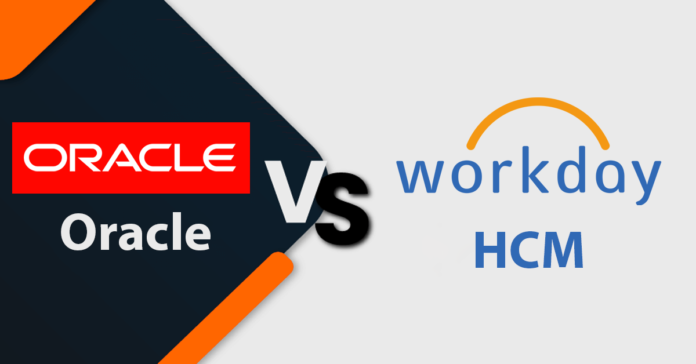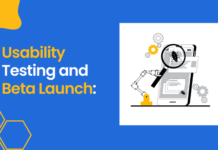When it comes to selecting a Human Capital Management (HCM) system for your business, two of the most popular choices are Oracle and Workday. In this article, we will explore the differences between Oracle and Workday HCM systems and help you decide which one is best suited for your organization’s needs. We will review their features, capabilities, pricing, customer service, and overall user experience.
What is Oracle?
Oracle is a software company that has been around since 1977. The company specializes in developing and selling database management systems, cloud infrastructure, and enterprise software products. Today, Oracle is one of the world’s largest computer technology companies with its headquarters located in Redwood City, California.
The company offers a wide range of products and services to businesses of all sizes across different industries. Some of the popular products offered by Oracle include Oracle Database, Java Platform, MySQL Database, and Oracle Cloud Infrastructure. Additionally, the company provides consulting services to help clients get the most out of their Oracle solutions.
Oracle’s success can be attributed to its commitment to innovation and investment in research and development. The company also places great emphasis on customer satisfaction by providing excellent customer service and support. As a result, many businesses have come to rely on Oracle for their technological needs.
What is WorkDay HCM?
Workday HCM is a cloud-based human resources management software that helps organizations manage their workforce efficiently. The platform offers a variety of services, including recruitment, talent management, payroll processing, benefits administration, and time tracking. Workday HCM is designed to streamline HR processes and enhance the employee experience.
One of the key benefits of Workday HCM is its user-friendly interface, which allows users to access all HR functions from a single platform. This feature saves time and increases productivity by eliminating the need for separate systems for different tasks. In addition to this, Workday HCM provides real-time data analytics that enable managers to make informed decisions about workforce planning and performance management.
Another significant advantage of Workday HCM is its mobile compatibility. With the mobile app, employees can access their personal information such as pay stubs or vacation days from anywhere at any time.
Oracle vs Workday HCM
Oracle and Workday are two popular human capital management (HCM) solutions used by organizations around the world. While both platforms offer similar features, there are some key differences between Oracle and Workday HCM.
Oracle HCM is a comprehensive suite of tools that includes HR management, talent management, payroll, benefits, and time and attendance tracking. It offers a high degree of flexibility and can be customized to meet the needs of organizations of all sizes. Additionally, Oracle HCM is highly configurable and offers a range of integrations with other Oracle products.
On the other hand, Workday HCM is a cloud-based solution that is known for its user-friendly interface and mobile accessibility. It offers HR management, payroll, and talent management functionality, as well as benefits and absence management. Workday HCM is highly scalable and can be used by organizations of all sizes, from small businesses to large enterprises.
When it comes to deployment, Oracle HCM is typically deployed on-premises or in a private cloud, while Workday HCM is a fully cloud-based solution. This means that Workday HCM requires less upfront investment in hardware and infrastructure and is generally quicker to deploy.
In terms of pricing, Oracle HCM tends to be more expensive than Workday HCM, particularly for smaller organizations. However, Oracle HCM offers a range of pricing options and can be customized to meet the specific needs of each organization.
Overall, the choice between Oracle HCM and Workday HCM will depend on the specific needs and priorities of each organization. Oracle HCM may be a better choice for organizations that require a high degree of customization and integrations with other Oracle products, while Workday HCM may be a better fit for organizations that prioritize ease of use, scalability, and mobile accessibility.
Key Features and Benefits : Oracle and Workday HCM
Oracle HCM and Workday HCM are two of the leading human capital management (HCM) solutions on the market today. While both platforms offer similar functionality, there are some key features and benefits that distinguish them from each other.
Key Features of Oracle HCM:
- HR Management: Oracle HCM offers a comprehensive set of HR management tools, including employee records, benefits administration, and compliance tracking.
- Talent Management: Oracle HCM includes a range of talent management features, such as performance management, succession planning, and learning management.
- Payroll: Oracle HCM provides a flexible payroll solution that can be customized to meet the needs of different organizations and jurisdictions.
- Time and Attendance: Oracle HCM includes time and attendance tracking tools that enable organizations to manage employee hours and ensure compliance with labor laws.
- Integration: Oracle HCM offers a range of integrations with other Oracle products, such as financials and supply chain management.
Key Benefits of Oracle HCM:
- Flexibility: Oracle HCM is highly configurable and can be customized to meet the specific needs of each organization.
- Scalability: Oracle HCM can be used by organizations of all sizes, from small businesses to large enterprises.
- Security: Oracle HCM provides enterprise-grade security features to ensure that employee data is protected at all times.
- Compliance: Oracle HCM helps organizations comply with labor laws and regulations by tracking employee records and hours.
Key Features of Workday HCM:
- HR Management: Workday HCM provides a comprehensive set of HR management tools, including employee records, benefits administration, and compliance tracking.
- Payroll: Workday HCM includes a flexible and customizable payroll solution that can be adapted to meet the needs of different organizations and jurisdictions.
- Talent Management: Workday HCM includes a range of talent management features, such as performance management, succession planning, and learning management.
- Mobile Accessibility: Workday HCM is designed to be accessed from anywhere on any device, making it easy for employees to stay connected and engaged.
- Analytics: Workday HCM includes powerful analytics tools that enable organizations to gain insights into their workforce and make data-driven decisions.
Key Benefits of Workday HCM:
- Ease of Use: Workday HCM is known for its user-friendly interface and intuitive design, making it easy for employees to use and navigate.
- Scalability: Workday HCM is highly scalable and can be used by organizations of all sizes, from small businesses to large enterprises.
- Mobile Accessibility: Workday HCM is designed to be accessed from anywhere on any device, making it easy for employees to stay connected and engaged.
- Data Analytics: Workday HCM includes powerful analytics tools that enable organizations to gain insights into their workforce and make data-driven decisions.
In conclusion,Oracle HCM and Workday HCM offer businesses a variety of features that can help them manage their human resources. Oracle HCM is more established and as such has more features and customization options, but it can also be more expensive. Workday HCM is new to the market but offers a cost-effective solution with a less complicated user experience. Ultimately, the decision between Oracle vs. Workday depends on what each company wants to prioritize: budget or flexibility.
Author Bio
My Name is Veera Ravala, Postgraduate in Marketing, Digital Marketing professional at HKR Trainings. I aspire to learn new things to grow professionally. My articles focus on the latest programming courses like Workday Certification, Servicenow, AWS, Devops Etc.















